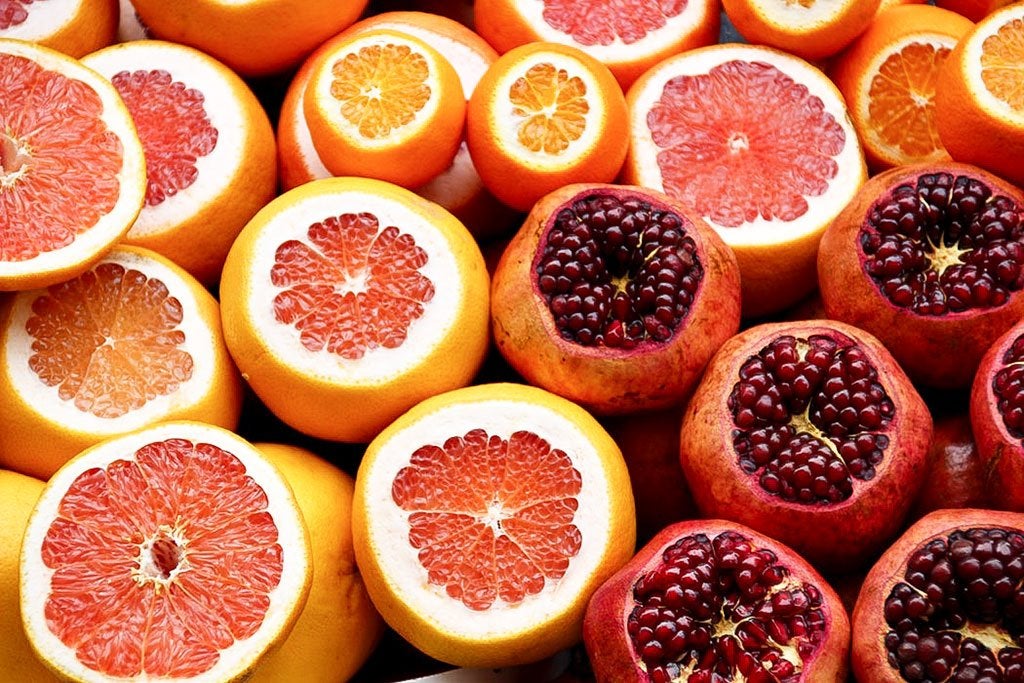
Although many nutrients are required for maximum power potential and muscle recovery, there are certain vitamins that stand out from an athletic perspective. Of these nutrients, it may be wise to boost your Vitamin C levels, which is not only vital for general health, but may positively affect your HIIT training progress.
Usually referred to as an antioxidant powerhouse, Vitamin C has been shown to promote immune function in hundreds of clinical trials, but its impact on physical performance is often overlooked. In fact, a nudge of vitamin C can do wonders for F45 circuit training and general physical activity.
WHAT IS VITAMIN C?
Also known as ascorbic acid or ascorbate, Vitamin C is a water-soluble micronutrient that has a similar structure to glucose. Historically, Vitamin C has been used to treat scurvy, which causes bleeding gums and falling teeth, often prevalent in sailors that had no access to fresh fruit and vegetables. Since then, Vitamin C has gained scientific interest in fields varying from immunity to energy production and recovery.
WHAT ARE THE MAIN SOURCES OF VITAMIN C?
Vitamin C can be obtained from consuming an abundance of fresh fruit and vegetables. It is found at a high concentration in citrus fruits, berries, potatoes, broccoli, brussels sprouts and bell peppers. If you are following an intense activity regimen, particularly HIIT-style training, including a rainbow of fruit and vegetables into your meals are essential for Vitamin C acquirement.
HEALTH BENEFITS OF VITAMIN C
Whether you’re a hardcore bodybuilder or a fitness novice starting on a HIIT program, everyone needs Vitamin C. Vital for many body functions such as immune support, reducing oxidative stress and tissue growth and repair, the health benefits are endless. Let’s zoom in on the health benefits of vitamin C on athletic performance, particularly during a HIIT style regimen.
1. Improved Muscular Repair
As Vitamin C is required for growth and repair of all tissues, this includes your muscles. When you exercise intensively, your muscles suffer from small micro-tears as a result of muscular exertion. Taking Vitamin C will help repair and strengthen the muscle, due to its role in protein synthesis in the body.
2. Reduction Of Cortisol & Oxidative Stress
Vigorous HIIT sessions can cause the release of a stress hormone called cortisol. This hormone, at a chronically high abundance, can impede fat loss, decrease muscle tissue and wreak havoc to the body’s hormonal balance. To reduce cortisol levels, taking Vitamin C may dampen the adrenal mobilization of cortisol.
3. Reduced Risks Of Infections
Upper respiratory tract infections are quite prevalent amongst athletes, particularly following strenuous training in adverse weather conditions. Experiencing a dip in immunity following exercise is very common, and can leave you susceptible to contracting bugs and illnesses. To reduce the likelihood of colds and flus that may hinder your training progress, Vitamin C may help strengthen your immune system to clear out pathogens as they come.
SHOULD I TAKE A VITAMIN C SUPPLEMENT?
Vitamin C can also be supplemented if you do not consume enough fruits and vegetables in your diet, or around intense periods of HIIT training to speed up recovery. Although public health bodies recommend adults to consume around 60 mg of vitamin C per day, athletes may require a little more to help prevent infection and oxidative stress from hindering training. It is suggested that anywhere between 200 mg-1g of vitamin C has been used to boost athletic performance.
In research, vitamin C has been taken with doses as high as 2g per day without any noted side effects. However, it is important to build up your intake slowly, and figure out a dose that is best to suit your HIIT training needs and individual requirements. It is also important to note that because Vitamin C is water-soluble, any excess is safely excreted from the body, meaning the tolerance of taking high doses is accepted by the body. It may be beneficial to take vitamin C with food and not on an empty stomach, to reduce the risk of gastrointestinal symptoms and indigestion. Also, do not take more than 1000mg of vitamin C in a single dose.
BOTTOM LINE
As you work your body into overdrive with HIIT training, it is critical to replenish your stores of antioxidants to undo any oxidative damage that may have occurred. Doing so will indirectly improve performance, reduce recovery time and promote energy production to give you that extra push in the next workout session. If you are following a HIIT training program, you may wish to consider taking a Vitamin C supplement at an adequate dose. Remember, this is not to replace the array of fruit and vegetables that you should be eating. Alongside a healthy balanced diet, a Vitamin C supplement can be extremely powerful to support your health goals.
FEATURED PRODUCT
Bootcamp Challenge Bundle
- 1Kg Go Good Protein Powder + Stainless Shaker
- 1x BePure Super Boost Vitamin C
- 1x BePure Magnesium Restore
- 1x BePure Omega 3

